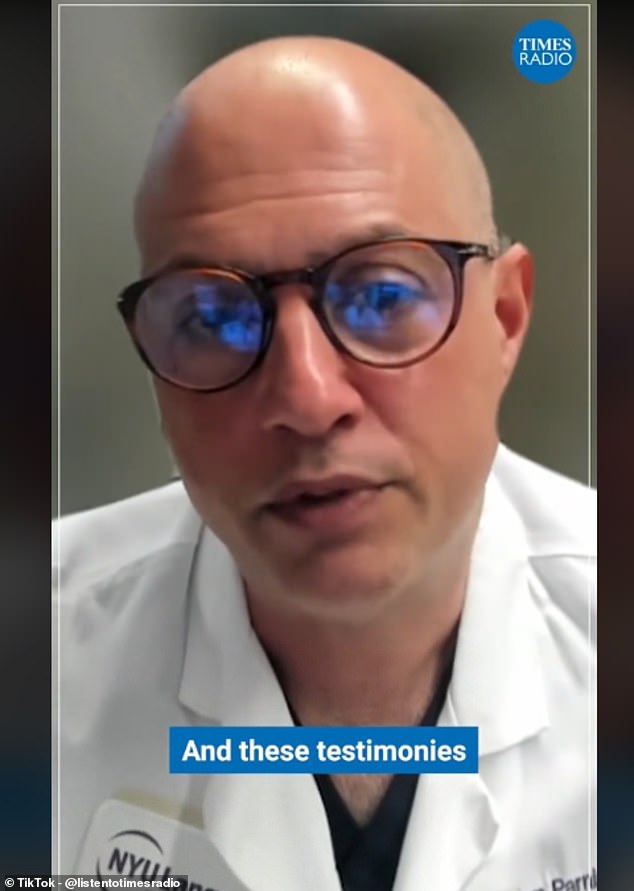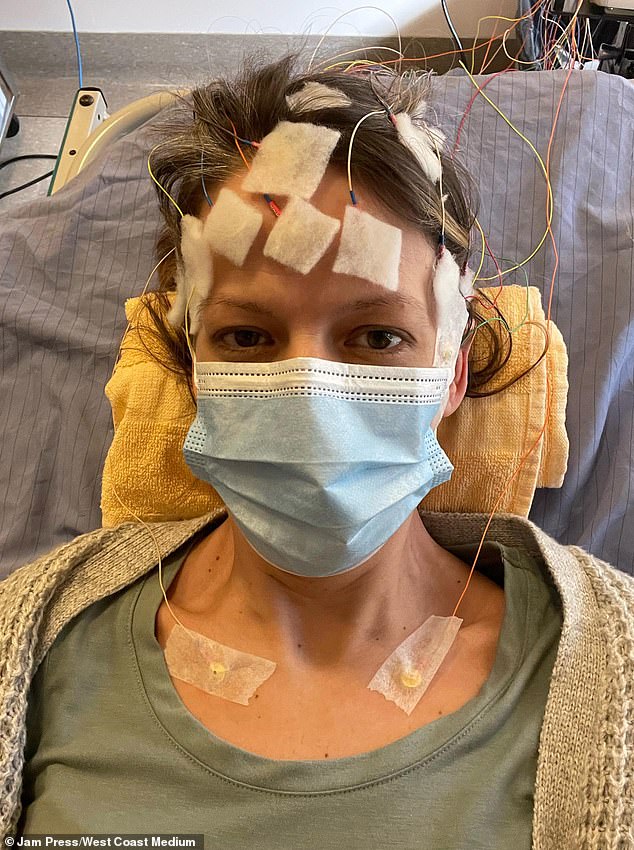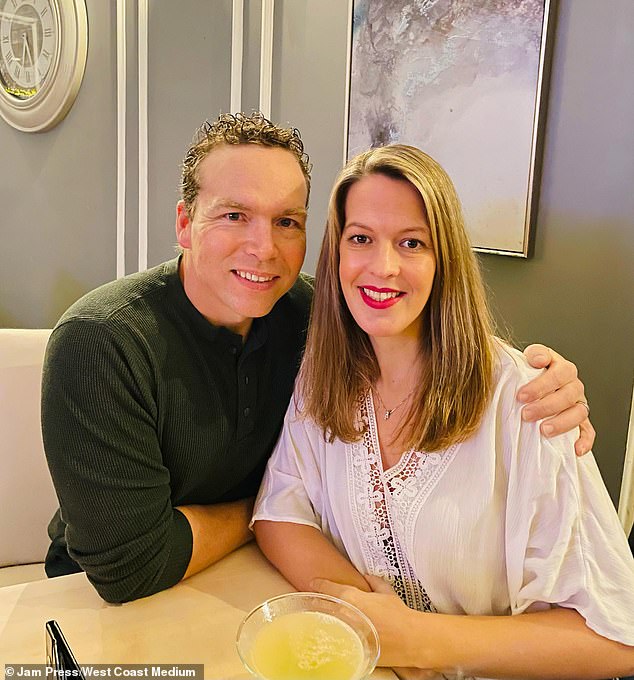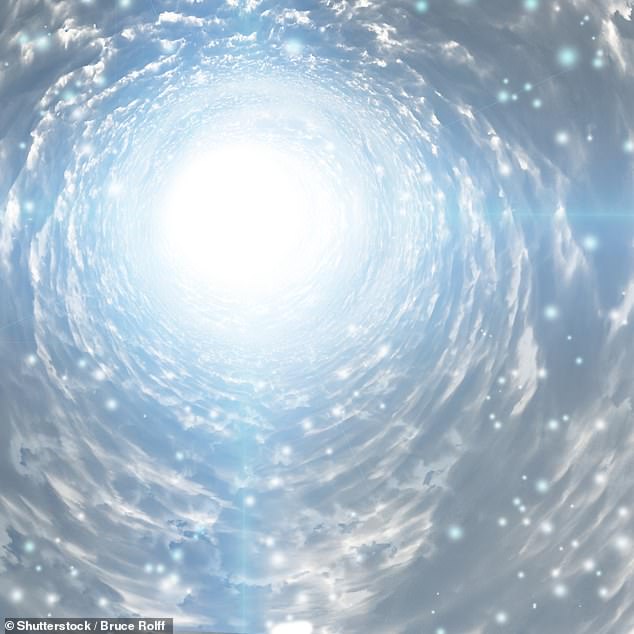There IS evidence of an afterlife, says top scientist who has studied millions of near-death experiences – they all tell a terrifyingly similar story
A top American scientist claims to have found evidence for life after death, thanks to studies of millions of patients who have had near-death experiences.
According to Dr. Sam Parnia, associate professor of medicine at New York University Langone Medical Center, patients who are resuscitated after their hearts stop often report reliving “every moment of their lives.”
What is particularly remarkable, he says, is that they relive memories not only from their own perspective, but also as if they were looking through the eyes of others.
These phenomena, which have been a source of fascination for clinicians and the public alike for decades, are believed to occur when people are clinically ‘dead’ and extremely unlikely to survive.
Dr. Parnia has spent thirty years conducting research among millions of people to determine where life ends and death begins.
He told it Times radio: ‘Many millions of people around the world have passed through this early stage of death and have been brought back to life.
‘We have investigated this in many thousands of people using many different scientific methods.
According to Dr. Sam Parnia, associate professor of medicine at New York University Langone Medical Center, patients often begin to “relive every moment of their lives.”

But what is truly remarkable about this state, he claims, is that they relive the situation “not only from their own perspective, but also from the experience of the other.”
‘Incredibly, (patients) consistently report that even though it appears from the outside that there is no consciousness and that they should be dead, internally they are going through a new experience.
‘They feel that their own consciousness, their selfhood, suddenly becomes enormous, clearer and sharper.
‘They can gather information about what is happening to them as doctors and nurses try to revive them.
“They gather this information almost in 360 degrees and come to the conclusion that ‘it looks like I’m dead.'”
He added: ‘What’s really remarkable is that in this state they begin to relive every moment of their lives, every interaction they’ve had with others – not just from their own perspective, but also from the experience and the perspective of the other.
‘For example, if they have done something to hurt someone, they experience exactly the same pain that the other person had.
“If they have done something that has caused happiness in other people, they experience the same happiness again.”
Experiences of seeing and hearing things while you are clinically dead do have a scientific basis.

Amber Cavanagh previously told MailOnline she was 43 when she suffered two strokes and entered heaven’s ‘meeting point’

Mrs Cavanagh, from Canada, said she could see her husband (pictured above) ‘crying over’ her body
For years, studies have shown that the human brain continues to function normally for a very short time after the heart stops, although on regular scans it appears to have stopped working.
Research has also shown that the brain can still experience sporadic bursts of activity during CPR even after an hour without oxygen.
Such discoveries have led some medics to call for a review of standard practice that states people should be declared dead after three to five minutes of brain oxygen deprivation, because in theory these patients can still be resuscitated.
Dr. Parnia added: “None of this is what we expected. We weren’t supposed to be able to reverse death.
‘We were not supposed to investigate what happens after death.
“You and I can’t remember more than a fraction of our lives now, if they asked us.
Yet at death it is as if everything in life is fixed and emerges like an iceberg emerging.

While research continues to prove that something happens in the brain after clinical death, the question of why exactly so many people have similar experiences remains a matter of debate among experts.
“You suddenly evaluate your entire life through a prism of morality and ethics.”
He also said: ‘Of course many of these people don’t come back.
“But when they do, they are positively transformed because they recognize that there was a deeper purpose in life and that even the smallest actions and the smallest thoughts – no matter how hidden they were – were not really hidden.”
People have previously told MailOnline about out-of-body experiences, such as seeing bright lights at the end of a tunnel or meeting deceased relatives.
Others, meanwhile, also remember seeing a heavenly afterlife.
While research continues to prove that something happens in the brain after clinical death, the question of why exactly so many people have similar experiences remains a matter of debate among experts.
Some theorize that as the brain undergoes these changes, it essentially releases the system’s ‘brakes’ and opens our perception to incredibly clear and vivid experiences of stored memories from our lives.
However, this is just a theory and other experts dispute it.
Clinical death also differs from brain death.
Brain death is when a person on an artificial life support machine loses all brain function, meaning he or she does not regain consciousness.
Such patients have no chance of recovery because their bodies cannot survive without artificial life support.
In Britain this means that a person who has suffered brain death is legally dead.
This can be difficult for the families of the deceased to understand, as they can see their loved one’s chest rise and fall with each breath from the ventilator and their heart continue to beat.
Brain death can be caused by both disease and injury when the blood and/or oxygen supply to the vital organ is cut off.
The condition is different from a vegetative state in which a patient’s brain function is preserved.
